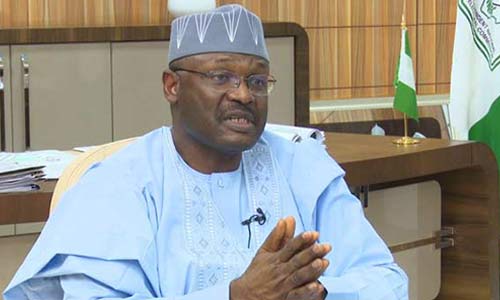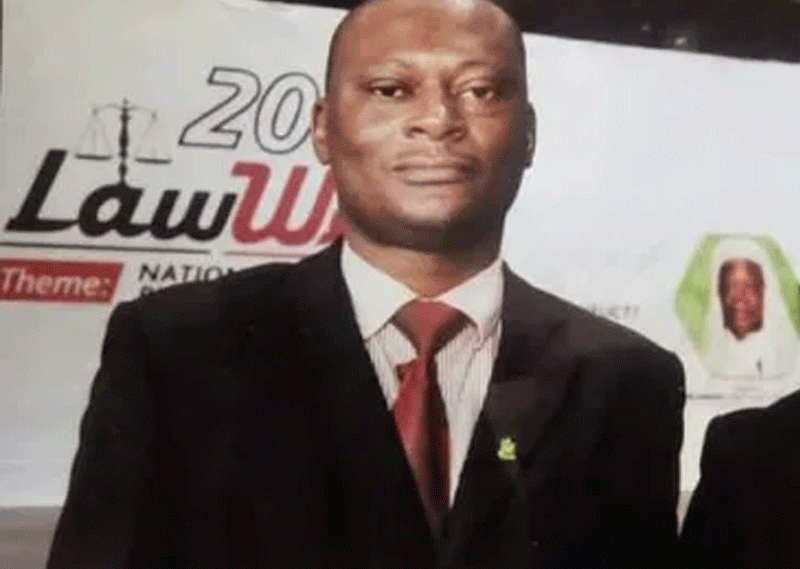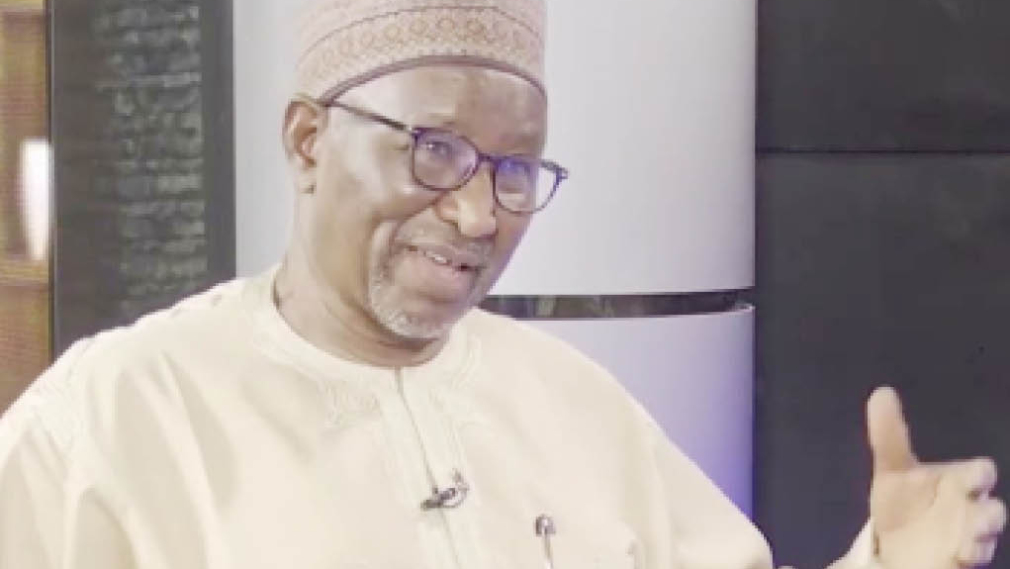INEC Moves Against Hacking, Plans N117bn Technologies

The Independent National Electoral Commission has planned to spend N117bn on electoral technologies in line with its decision to deploy the Bimodal Voter Accreditation System and the Result Viewing Portal in the 2023 elections.
This came as the commission is also investing in top-notch cyber security systems to ward off attacks by hackers against its servers, website and database.
The amount represents 33.4 per cent of its N305b budget for the polls, according to the INEC Election Project Plan for the 2023 elections obtained by our correspondent on Wednesday.
The INEC Chairman, Mahmood Yakubu, had said there was no going back on the commission’s vow to use technology, including BVAS and IReV portal in the forthcoming polls despite protests by the Presidential candidate and chieftains of a major political party.
He had also complained that the commission’s result viewing portal came under attack from hackers during the Ekiti and Osun governorship elections.
The INEC chairman, who disclosed this at a stakeholders’ conference on election result management in Abuja, stated, ‘’Our engineers reported several cyber attacks on the portal during the Ekiti and Osun governorship elections; some of them from as far as Asia. I am glad to note that all of them failed. We have tasked our engineers to do everything possible to fully protect the IReV and all our web resources.”
The electoral body’s election plan indicates that the bulk of the N117bn earmarked for technologies was spent on the procurement in foreign currency of a new voter enrolment and voter accreditation device meant to combine the functions of the Direct Data Capture Machine, the Z-Pad and the Smart Card Reader.
It was gathered that the commission has also developed tight protocols against attacks on its cyber facilities.
But the 2023 EPP which provides the commission and other electoral stakeholders with the template for the execution of roles, activities and timelines for the planning and conduct of the 2023 general election explained that the N305bn election budget followed a thorough consideration and review of the budget proposals submitted by 23 departments and directorates which was approved by the Election Project Plan Committee.
The 2023 EPP was developed by a 33-member Election Project Planning Committee inaugurated on June 10 2021 with the mandate to undertake a review of the 2019 EPP, develop the 2023 EPP and the required framework for its periodic monitoring and evaluation.
It argued that the budget was based on the ‘’fundamental principle that elections must be efficient and cost-effective to deliver better value for money.’’
The document read, ‘’Of this amount (N305bn), the commission requires N161.9bn for electoral operational and administrative costs, N117.1bn for electoral technology costs; N18.5bn for electoral capital costs.
“The sum of N7.4bn that is 2.5 per cent of the electoral operational and administrative, electoral technology and electoral capital costs is set aside as contingency for unforeseen electoral expenses.’’
It added, “In nominal terms, this is an increase of 61.37 per cent on the cost of conducting the 2019 elections. However, in real terms, the proposed budget for the 2023 general election is comparable to the expenditure on the 2015 and 2019 general elections taking into consideration the increased rate of the consumer price index between 2015, 2019 and 2021, as well as the widening differentials in the foreign exchange rate.
“The combination of these two factors has direct implications for the domestic procurement of goods and services, as well as for the purchase of off-shore electoral equipment and materials. Added to this is the cost element of adhering to the public health requirements and protocols occasioned by the COVID-19 pandemic.’’
According to INEC, another major expenditure item on the election budget is the election logistics expenses for the movement, deployment and retrieval of personnel and materials to and from the various election locations across the country.
It stated that the huge cost associated with this activity was due to the commission’s adherence to the safety and health measures associated with the conduct of elections within the context of the COVID-19 pandemic.
The electoral body noted, “This meant significant increases in the number of Registration Area Centres, which serves as the overnight camp for election officials on the eve of election as well as for vehicles, boats and motorcycles to be hired by the commission for the transportation of election personnel.
“The commission’s continued effort to protect the security and sanctity of the sensitive materials including the ballot papers and result sheets by producing them to the highest standards and quality is another heavy cost item in the budget.
“The other top expenditure item is the personnel cost for the recruitment and deployment of at least four election officials to the 176,846 polling units nationwide and for the required number of Collation Officers, Supervisory Presiding Officers and Returning Officers. So also, is the cost of procurement, storage and distribution of strategic logistics items and nonsensitive election materials and for the Conduct of nationwide Continuous Voter Registration exercise.’’
The commission further disclosed that the budget was considered based on the Average Cost per Registered Voter Index, the cost per voter for the election based on a projected voting population of 100 million registered voters estimated to be $5.39.
Justifying the budget for the polls, it said the cost was less than the $9.62 and $7.38 per voter for the 2015 and 2019 general elections, respectively and less than the $7.70 per voter for the 2020 general election in Ghana.
“That the commission was able to progressively reduce the average cost per registered voter despite the increased number of registered voters and the creation of 56,873 new polling units is a demonstration of its commitment to prudent management of resources.
“Apart from the necessity to comply with the requirements of conducting the 2023 election within the context of the COVID-19 pandemic, the Plan envisages the introduction of several new activities and innovations to improve the electoral process.
“This includes the upgrading of certain infrastructural facilities at the various levels of operation at the headquarters, state, Federal Capital Territory and LGA offices of the commission as well as the deployment of new electoral technology and equipment,’’ the plan disclosed.
INEC further explained that 78.44 per cent of the entire budget is accounted for by 10 major electoral activities, stressing that the dominant cost item in the election budget is the deployment of electoral technology to improve the integrity and credibility of the electoral process.
The electoral body further stated, ‘’This is with reference to the procurement in foreign currency (US$) of a new voter enrolment and voter accreditation device to combine the functions of the Direct Data Capture Machine, the Z-Pad and the Smart Card Reader.



